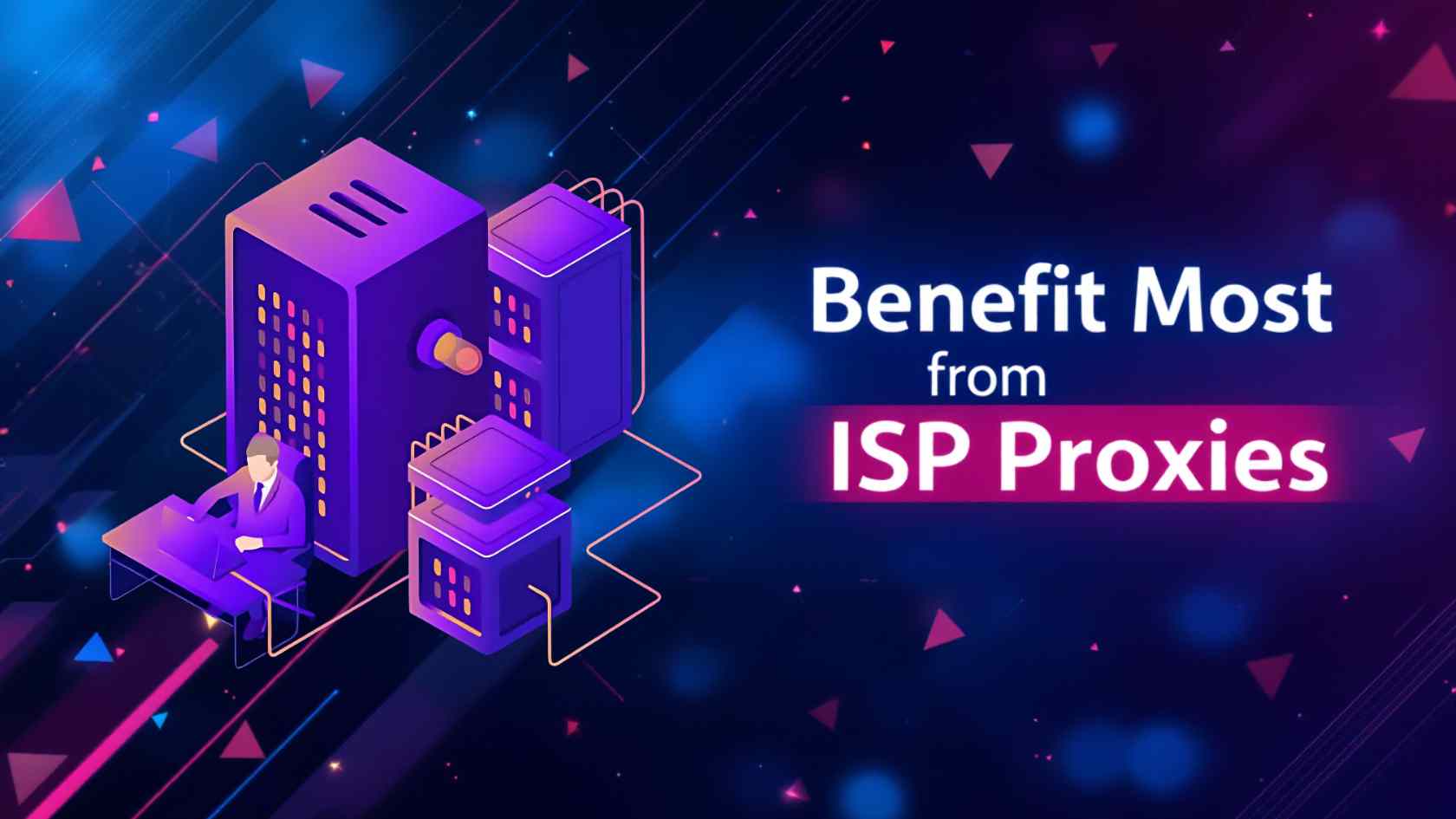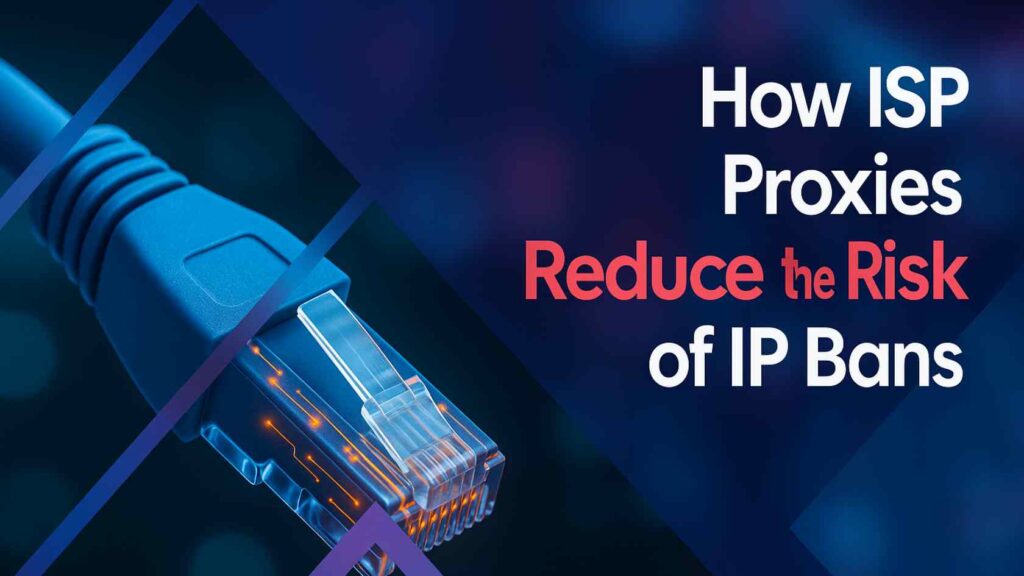If you have most likely been through the experience of working with multiple accounts, scraping web data, or carrying out automated actions on the Internet, there is no need to mention the risk of getting your IP address banned constantly. By now, the year 2025, platforms have used better technology to stop any illegal actions and your regular proxy might not be the best solution anymore. ISP proxies are the new kids on the block: they combine the features of residential and datacenter proxies to get the best of both worlds. They are gaining in popularity among those who want a combination of stability, legality, and outstanding performance.
What Are ISP Proxies and How Do They Work?
ISP proxies, otherwise referred to as static residential proxies are IP addresses that originate from genuine Internet Service Providers but are located on datacenter servers. This strange mix gives them the legitimacy of residential IPs combined with the speed and stability of datacenter infrastructure.

When you are using an ISP proxy, websites recognize your connection as that of a genuine user having a static residential IP. Behind the scenes, though, the traffic is being passed through high-speed servers capable of managing large-scale automation, scraping, or multi-session browsing smoothly.
They are not rotating like most residential proxies, nor are they as easily blacklisted as datacenter proxies, so they are a balanced and effective solution.
Key Ways ISP Proxies Help Avoid IP Bans
IP bans happen when websites notice unusual behavior: excessive requests from the same IP, repeated login attempts, or activity from recognized proxy sources. ISP proxies lessen that risk in various important ways:
1. Legitimacy of Residential IPs
Because ISP proxies are allocated by actual ISPs, sites identify them as being from ordinary users. They do not trigger the same alarm as datacenter IPs, which are commonly shared, reused, or already banned.
2. Static IPs with Consistent Identity
Most proxy solutions use rotating IPs, which become suspicious if your identity appears to shift from one place to another within seconds. ISP proxies provide static, stable IPs, which will make your activity look more predictable, perfect for logins of an account, browsing sessions, or tracking users.
3. Lower Blacklist Risk
Due to their nature and activity, ISP proxies tend not to be on established blacklist databases. That lowers the risks of instant bans or CAPTCHAs for repetitive activities or scraping sensitive sites.
4. High Uptime and Speed
Since they are located on quick, stable infrastructure, ISP proxies are capable of providing high-throughput performance without triggering performance-based indicators such as lagging responses or fluctuating request times.
Use Cases That Benefit Most from ISP Proxies

Some businesses and workflows gain significantly from the special strengths of ISP proxies:
- E-commerce and sneaker bots: Online stores such as Nike, Adidas, and Supreme strongly censor traffic. ISP proxies provide the residential presence required to bypass bans from flash sale or product drop.
- Social media automation: Running multiple Instagram, TikTok, or Twitter accounts? ISP proxies keep a reputable digital reputation and minimize log-in verifications or shadowbans.
- Web scraping: For valuable targets such as travel websites, job boards, or price comparison websites, ISP proxies cut down on CAPTCHA prompts and provide consistent access to information.
- Ad verification and SEO tracking: Marketing teams require trustworthy, unblocked access to competitor metrics and local search results without subjecting themselves to bans or filtered impressions.
2025 Challenges: Why Traditional Proxies Fail
The landscape in 2025 looks different from a few years prior. Sites now use AI-driven detection platforms that assess IP reputation, behavioral patterns, and even DNS fingerprinting. This is where old-school proxies fail:
- Datacenter proxies are inexpensive and speedy but usually marked as non-residential by major platforms.
- Residential proxies, though reliable, can spin too fast, disrupting session continuity or causing geo-location mismatches.
- Free proxies are basically worthless for anything substantial. They are cluttered, slow, and probably already blacklisted.
ISP proxies bridge the gap by providing a solid, human-proxy footprint with little chance of detection or disruption.
Choosing the Right ISP Proxy Provider

Not every ISP proxy is made the same. With increased demand, the quality and quantity of providers with dodgy quality or over-allocated IP pools has also increased. In choosing among options, consider first:
- Clean, dedicated IP pools
- Fast network with low latency
- Real-time dashboard and usage monitoring
- Good privacy policies and data protection
- Support staff that knows your application
If you are looking for a reliable ISP proxy, be sure to choose a provider that does not cut corners. A trusted name makes sure your operations stay smooth, undetected, and scalable.
Final Words
In the web world today, being online and invisible is more challenging than ever. ISP proxies are a huge solution that has been born, providing the legitimacy of residential IPs, the performance of datacenter infrastructure, and stability to prevent bans.
Whether you are an automation specialist, digital marketer, or entrepreneur running multiple accounts, investing in ISP proxies can be the difference between seamless performance and constant blocks. As web defenses continue to evolve in 2025, choosing the right proxy solution is not just a technical decision, it is a competitive advantage.










